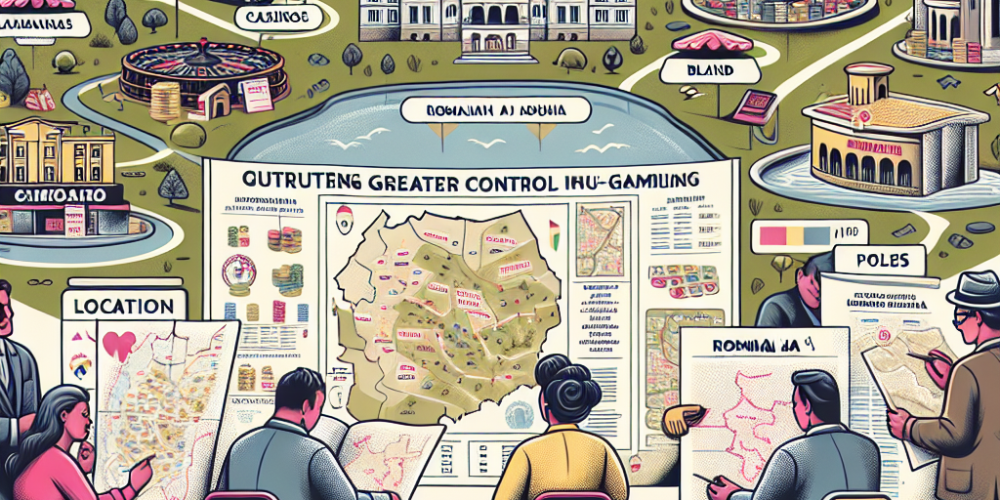In Romania, a draft bill backed by city mayors could soon shift regulatory power over gambling to local authorities, introducing new licensing taxes in the process. This move would effectively reduce the role of the National Gambling Office (ONJN) in supervising the industry.
The bill, presented by the Ministry of Development, proposes to grant municipalities the authority to license or prohibit gambling establishments based on local development priorities, urban planning, public order, and public health considerations. Currently, gambling operators in Romania are licensed at the national level, with local councils only playing an advisory role in the approval process of physical gambling venues within their regions.
This demand for greater regional control over the gambling sector arises amidst Romania’s ongoing efforts to increase oversight. In 2025, the Romanian government, in collaboration with international entities, has been active in imposing stricter controls. For instance, in June, Romania enlisted Meta and Google to block illegal gambling advertisements and assist in curbing unauthorized gambling operations.
Leading the charge for increased local governance is Nelu Popa, the mayor of Reșița. He has urged the government to empower local administrations, criticizing the ONJN’s inability to enforce regulations effectively. Popa noted the proliferation of betting shops and gaming halls in defiance of existing rules as evidence of this regulatory failure.
This issue mirrors challenges faced in the online gambling space, where numerous companies target Romanian consumers without proper licensing. The ONJN recently responded by adding 30 gambling websites to its blacklist.
The proposed bill also includes provisions for additional taxation, with local councils seeking to impose a direct levy to address the social impact of gambling. The Ministry of Development stated that the reform aims to ensure genuine public control over an economically significant activity posing social risks, tailored to the specific contexts of individual communities. Additionally, the ministry emphasized the need for securing funds for social assistance, public safety, and local services.
This push for local taxation occurs alongside recent national adjustments to the tax structure for online gambling, introducing variable rates depending on gambling types and player earnings. The government is striving to address a budget deficit estimated at 30 billion lei (approximately $7.1 billion).
The proposed transfer of regulatory power to local authorities has sparked a debate on its potential implications. Supporters argue that municipalities are better positioned to understand and respond to the unique needs and challenges of their communities. “Local leaders are in tune with their constituents and the specific issues their areas face,” they suggest. Proponents believe that local control could lead to more effective regulation and community-focused decision-making.
Conversely, critics express concerns about the possibility of inconsistent regulations across the country. They warn that varying local policies could create confusion and complications for operators, potentially hindering business operations and investment. Some also worry that increased taxes might burden small and medium-sized enterprises within the industry, potentially stifling innovation and growth.
The debate over local versus national control is not unique to the gambling sector. Across various industries, there is an ongoing discussion about the balance of power between central authorities and local governance. This conversation reflects broader questions about the most effective ways to regulate industries with significant social and economic implications.
As the bill moves through the legislative process, stakeholders from all sides will likely continue to advocate for their positions. The outcome will have significant implications not only for the gambling industry but also for the broader discourse on governance and regulation in Romania.
Ultimately, the decision will hinge on whether the perceived benefits of local control outweigh the potential downsides of regulatory fragmentation and increased taxation. The Romanian government will need to carefully consider these factors as it navigates the complexities of modern governance in a rapidly changing economic landscape.

















